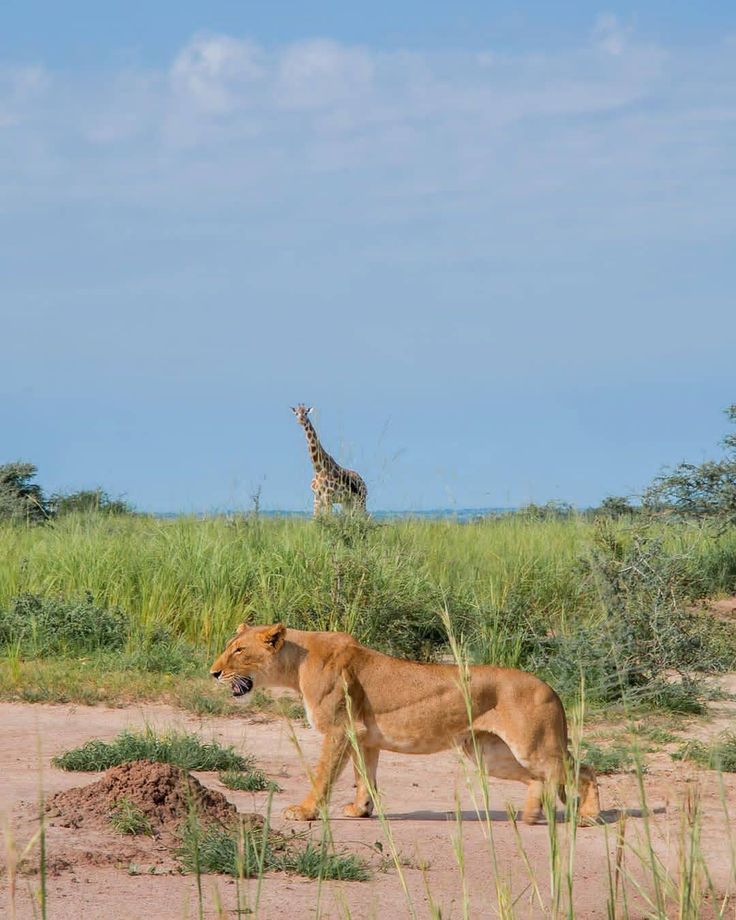Responsible Travel Matters in Uganda’s National Parks
Uganda’s national parks are some of the most biodiverse and ecologically significant areas in Africa, attracting travelers from around the world. From gorilla trekking in Bwindi Impenetrable National Park to game drives in Murchison Falls and birdwatching in Queen Elizabeth National Park, Uganda offers unparalleled opportunities for adventure. However, with these experiences comes a responsibility to ensure that tourism positively impacts the environment, wildlife, and local communities. Responsible Travel Matters in Uganda’s National Parks
Responsible travel in Uganda’s national parks plays a vital role in conservation efforts, community support, and sustainable tourism practices. Here’s why responsible travel matters and how you can contribute:
1. Protecting Fragile Ecosystems
Uganda’s national parks are home to some of the world’s most endangered species, including mountain gorillas, chimpanzees, and tree-climbing lions, as well as critical ecosystems that sustain them. Responsible travel helps mitigate the environmental impact of tourism.
How You Can Help:
- Follow designated trails to minimize habitat disturbance.
- Avoid littering and take all waste back with you or use proper disposal facilities.
- Use eco-friendly products, such as biodegradable soap and sunscreen, to avoid polluting waterways.
2. Conserving Wildlife
Wildlife is the cornerstone of Uganda’s tourism. Unregulated or careless tourism can lead to stress and behavioral changes in animals. Responsible travel ensures wildlife is protected and encounters are respectful.
How You Can Help:
- Maintain a safe distance from animals, especially during gorilla and chimpanzee trekking.
- Avoid loud noises, sudden movements, or feeding animals, which can disrupt their natural behavior.
- Adhere to park rules, such as limiting group sizes during gorilla trekking (8 people per group) and staying at least 7 meters away from gorillas.
3. Supporting Community Development
Uganda’s national parks are surrounded by communities that depend on tourism for their livelihoods. Responsible travel ensures that local communities benefit directly from tourism revenue, which can fund education, healthcare, and infrastructure projects.
How You Can Help:
- Choose tour operators and lodges that employ local staff and support community initiatives.
- Participate in cultural tours or activities that allow you to learn about and support local traditions.
- Purchase locally made crafts and souvenirs to support artisans and small businesses.
4. Promoting Sustainable Tourism Practices
Sustainable tourism reduces the environmental footprint of travel while ensuring economic benefits reach local communities. Uganda’s parks are actively working to promote eco-friendly practices.
How You Can Help:
- Stay in eco-lodges or accommodations that use renewable energy and sustainable materials.
- Travel with tour operators who prioritize sustainability and follow Uganda Wildlife Authority (UWA) guidelines.
- Consider visiting during less crowded seasons to reduce overtourism and its environmental impact.
5. Reducing Human-Wildlife Conflict
Encroachment on wildlife habitats by humans often leads to conflicts that endanger both people and animals. Responsible tourism helps mitigate these conflicts by generating revenue for conservation and creating alternative livelihoods for local communities.
How You Can Help:
- Support conservation programs, such as those run by UWA or NGOs, that focus on creating wildlife corridors or providing resources to communities.
- Avoid activities or tours that involve unethical treatment of wildlife, such as captivity or baiting animals.
6. Raising Awareness Through Education
Responsible travel also includes educating yourself and others about conservation and the importance of protecting Uganda’s unique biodiversity.
How You Can Help:
- Attend pre-trekking briefings and follow ranger guidelines during activities like gorilla or chimpanzee tracking.
- Share your experiences responsibly, ensuring you emphasize the importance of conservation and sustainability to others.
Examples of Responsible Tourism Initiatives in Uganda
- Revenue Sharing with Communities
The Uganda Wildlife Authority allocates 20% of park entry fees to surrounding communities. This revenue funds schools, health centers, and infrastructure projects, ensuring that tourism benefits those who live near the parks. - Gorilla Conservation
Gorilla trekking permits ($700 per person) fund anti-poaching patrols, habitat protection, and community engagement programs. This model has contributed to the steady growth of mountain gorilla populations. - Eco-Friendly Accommodations
Many lodges and camps in Uganda’s national parks operate sustainably by using renewable energy, sourcing food locally, and practicing waste management. - Community-Based Tourism Projects
Programs like the Batwa Cultural Experience near Bwindi Impenetrable National Park provide tourists with authentic cultural experiences while supporting marginalized groups.
Challenges to Responsible Travel in Uganda’s Parks
- Human-Wildlife Conflict: Communities near national parks may experience crop destruction or livestock loss due to wildlife. Continued funding and community engagement are needed to address these issues.
- Overtourism: Popular parks like Bwindi and Queen Elizabeth risk overtourism, which can strain resources and disrupt ecosystems.
- Climate Change: Rising temperatures and changing rainfall patterns threaten ecosystems and wildlife habitats, underscoring the need for sustainable tourism practices.
Tips for Responsible Travel in Uganda’s National Parks
- Plan Ahead: Book tours and permits through reputable operators who adhere to UWA guidelines.
- Pack Responsibly: Bring reusable water bottles, eco-friendly toiletries, and lightweight clothing to reduce your environmental footprint.
- Respect Local Cultures: Dress modestly, seek permission before taking photos, and learn about local customs to ensure positive interactions with communities.
- Support Conservation: Donate to reputable organizations or projects that focus on conservation and community development.
- Travel Off the Beaten Path: Consider exploring lesser-known parks like Kidepo Valley or Lake Mburo National Park to reduce pressure on more popular destinations.
Conclusion Responsible Travel Matters in Uganda’s National Parks
Responsible travel is essential to the long-term sustainability of Uganda’s national parks. By making informed choices, respecting wildlife and communities, and supporting sustainable practices, travelers can enjoy the beauty of Uganda while contributing to its conservation and development. Together, we can ensure that Uganda’s incredible biodiversity and cultural heritage are preserved for future generations.




